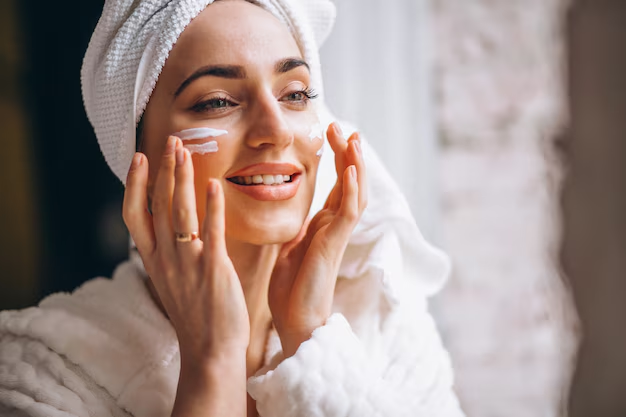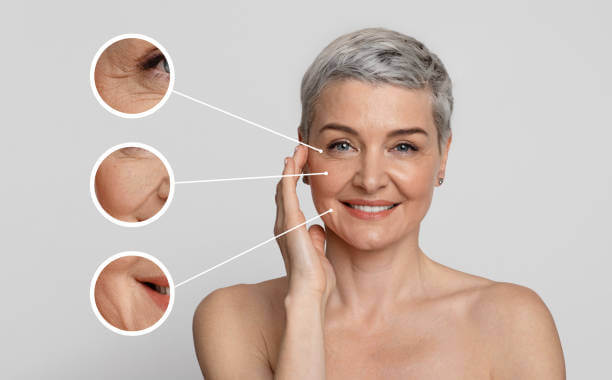Our skin is more than just what we see on the outside. It is the body’s largest organ and acts as a shield, protecting us from pollution, bacteria, and other harmful things in the environment. Healthy skin keeps these dangers away and plays a big part in keeping our body safe and balanced every day.
Besides protection, the skin has many other important jobs. It helps control our body temperature, stores essential fluids, and allows us to feel touch, pressure, and pain. These functions are vital for our overall health and daily comfort. When skin is healthy, it can perform these tasks more effectively.
Even though skin is so important, many people overlook its care. Some use the wrong products or ignore basic skin care needs, leading to dryness, irritation, breakouts, and other problems. Taking simple steps to care for the skin properly can make a big difference in how it looks, feels, and functions over time. Healthy skin is key to a healthy life.
Why Is Skin Care So Important ?

Protection from External Factors
The skin is a powerful defense against harsh weather, toxins, UV rays from the sun, and harmful pathogens like bacteria and viruses. It forms a protective barrier that shields the body from these environmental threats. However, without proper skincare, this barrier can weaken, leaving the skin vulnerable to infections, premature aging, and even skin cancer. Maintaining a good skincare routine is essential to keep the skin strong and healthy, ensuring it continues to protect the body effectively and prevent long-term damage caused by neglect. Healthy skin is key to overall well-being and defense.
UV Radiation: Exposure to ultraviolet rays can cause sunburn, early signs of aging, and increase the risk of skin cancer. Regular sunscreen use helps protect the skin from these harmful rays and prevent lasting damage.
Pollution: Environmental pollutants like dust, dirt, and chemicals can build up on the skin, clogging pores and causing inflammation. This can speed up the aging process and lead to skin issues.
Maintaining Moisture Balance
Healthy skin keeps a balanced level of moisture. When the skin becomes too dry or oily, it can cause problems like acne, eczema, or irritation. A good skincare routine helps maintain this balance by locking in moisture, preventing dehydration, and avoiding excess oil. This keeps the skin hydrated, promoting a soft, smooth texture and reducing the risk of dryness or breakouts. By caring for your skin properly, you can support its natural ability to stay moisturized, which is key to maintaining a healthy, clear complexion and overall skin health.
Hydration: For skin to remain elastic and resilient, it must retain enough moisture. A well-hydrated skin barrier helps maintain smoothness and flexibility while preventing common skin issues like dry patches, flakiness, and irritation. Proper hydration keeps the skin’s natural barrier intact, allowing it to defend against environmental stressors and maintain a healthy glow.
Oil Control: On the other hand, oily skin requires special care to manage excess oil production. When the skin produces too much sebum, it can lead to clogged pores, acne, and blackheads. Choosing oil-free or mattifying products can reduce shine and help maintain a clear complexion without drying out the skin.
Self-Care and Confidence
Skincare isn’t just about keeping your skin healthy—it also plays a significant role in your mental well-being. Taking the time to care for your skin can have a positive impact on how you feel about yourself. When you follow a skincare routine, it not only improves the condition of your skin but also provides a sense of self-care and accomplishment. This can boost your self-esteem and help you feel more confident in your appearance. When your skin looks and feels good, it can make a noticeable difference in how you carry yourself, leading to greater comfort and confidence in your own skin.
Stress Relief: A skincare routine, such as gentle cleansing or moisturizing, can serve as a form of self-care, providing relaxation and stress relief after a busy day. Taking a few moments for yourself to care for your skin can help you unwind and create a calming ritual that reduces stress.
Visible Results: Seeing the benefits of your skincare routine, like clearer skin, fewer blemishes, or reduced wrinkles, can significantly boost your mood. Noticing positive changes in your skin can enhance your confidence and contribute to better overall mental health, making you feel more positive and self-assured.
Anti-Aging Benefits

As we age, our skin naturally undergoes changes, with common signs including wrinkles, fine lines, and a decrease in elasticity. These changes are a normal part of the aging process, but consistent skincare can help slow down this progression and even reverse some of the damage caused by environmental factors like UV rays, pollution, and poor lifestyle choices. Incorporating products rich in antioxidants can help fight the effects of free radicals, while retinoids stimulate collagen production to reduce the appearance of fine lines. Regular moisturization helps maintain the skin’s hydration, supporting its firmness and youthful appearance. Together, these skincare practices play an essential role in preserving healthy, glowing skin as we age.
Anti-Aging: Key ingredients like vitamin C, retinol, and hyaluronic acid are known for their ability to fight signs of aging. These ingredients promote collagen production, which helps improve skin texture and reduce the appearance of wrinkles and fine lines, giving the skin a smoother, more youthful look.
Prevention: It’s important to begin using anti-aging products early. By incorporating proper skincare habits now, you can help prevent premature signs of aging and maintain youthful, glowing skin for years to come. Prevention is key to keeping your skin looking fresh and healthy as you age.
Preventing Skin Conditions
Regular skincare practices can help prevent or manage a wide variety of skin conditions, such as acne, eczema, rosacea, and psoriasis. By understanding your skin type and its specific needs, you can take steps to minimize flare-ups and maintain clear, healthy skin.
Acne: Proper cleansing, exfoliating, and targeted treatments like salicylic acid or benzoyl peroxide can keep acne under control.
Sensitive Skin: Choosing fragrance-free and gentle products can help those with sensitive skin avoid irritation or allergic reactions.
5 Common Skin Care Mistakes You’re Probably Making (And How to Fix Them)
Many of us invest in skincare products, but we often overlook key details in our routine. Simple mistakes can have a big impact on skin health, preventing us from getting the results we want. These errors can lead to dryness, irritation, or breakouts, even when using good products. In the following, we’ll highlight five common skincare mistakes and provide practical tips on how to correct them. By adjusting these habits, you can improve your skin’s overall health and appearance.
Mistake #1: Skipping Sunscreen
Sunscreen is an essential step in any skincare routine, yet it is often overlooked. UV radiation from the sun is a major contributor to premature aging, pigmentation, and skin cancer. Despite these risks, many people skip sunscreen, thinking it’s only needed on sunny days or when outdoors. However, UV rays can damage the skin even on cloudy days or while indoors, making regular sunscreen application crucial for long-term skin health.

Why It’s a Mistake:
UV rays cause sunburn, skin aging (wrinkles, sagging), and hyperpigmentation (dark spots).
Cumulative damage from UV exposure can increase the risk of skin cancer.
The effects of UV damage may not be visible immediately but build up over time.
How to Fix It:
Apply sunscreen daily: Even on cloudy days or when indoors, UV rays can penetrate windows.
Use broad-spectrum SPF 30 or higher, ideally SPF 50 for better protection.
Reapply sunscreen every two hours, especially if you’re sweating or swimming.
Tip:
Look for a lightweight, non-comedogenic sunscreen if you have oily or acne-prone skin, so it won’t clog your pores.
Mistake #2: Over-Cleansing Your Skin
Cleansing is a crucial step in any skincare routine, but over-cleansing can do more harm than good. When you cleanse too frequently or use harsh products, it can strip your skin of its natural oils, which are essential for maintaining moisture and protection. This leaves the skin vulnerable, dry, and irritated. Many people make this mistake in an attempt to remove excess oil, but this can upset the skin’s natural balance, leading to further dryness, redness, or even increased oil production as the skin tries to compensate. It’s important to cleanse gently and only as needed to maintain healthy skin.
Why It’s a Mistake:
Excessive cleansing can cause dryness, irritation, and a disrupted skin barrier.
It can lead to overproduction of oil, causing clogged pores and breakouts.
Harsh cleansers can trigger inflammation, making skin more prone to redness and sensitivity.
How to Fix It:
Cleanse twice daily—once in the morning and once before bed.
Use a gentle, hydrating cleanser with soothing ingredients like glycerin or ceramides.
Avoid scrubbing your skin too harshly or using cleansers with strong fragrances and alcohols.
Tip:
If you wear makeup, consider double cleansing: first, use an oil-based cleanser to remove makeup, then follow with a gentle water-based cleanser.
Mistake #3: Using Harsh Products

Many people use products that are too harsh for their skin, like strong exfoliants or products with high concentrations of active ingredients. While these products can deliver fast results, they can also cause irritation and damage when used incorrectly or too frequently. Overuse of potent ingredients can disrupt the skin’s natural barrier, leading to redness, sensitivity, and even long-term damage. It’s important to choose products that match your skin type and to use them as directed, gradually introducing them into your routine to avoid overloading your skin.
Why It’s a Mistake:
Harsh products can damage the skin barrier, leading to redness, flakiness, and sensitivity.
Using too many strong actives (like retinol, glycolic acid, or vitamin C) can overwhelm the skin and cause adverse reactions.
Excessive exfoliation can make the skin thin and more susceptible to environmental damage.
How to Fix It:
Introduce actives slowly: Gradually incorporate strong ingredients like retinoids or acids into your routine to allow your skin to adjust.
Avoid layering too many actives. For example, don’t combine exfoliating acids and retinoids in one routine.
Use hydrating products alongside actives to balance out dryness and irritation.
Tip:
Always patch test new products, especially if they contain active ingredients, to ensure they won’t irritate your skin.
Mistake #4: Not Hydrating Enough
Hydration is essential for maintaining healthy, youthful-looking skin, but many people focus more on exfoliating, toning, or treating acne, often overlooking the importance of moisturizing. While exfoliating and acne treatments are necessary for specific skin concerns, they can leave the skin dry and stripped of its natural moisture if not followed by proper hydration. Moisturizing helps maintain the skin’s moisture balance, keeping it soft, plump, and protected. Neglecting hydration can lead to dryness, irritation, and even premature aging over time. It’s important to make moisturizing a regular part of your skincare routine.
Why It’s a Mistake:
Dehydrated skin can appear dull, dry, and prone to fine lines and wrinkles.
Lack of moisture can lead to tightness, irritation, and an imbalanced skin barrier.
Dehydrated skin may increase oil production, which can result in clogged pores and acne.
How to Fix It:
Use a good moisturizer daily, tailored to your skin type. Look for ingredients like hyaluronic acid, glycerin, or squalane.
Drink plenty of water to hydrate from the inside out.
Hydrating serums or oils can provide extra moisture when needed.
Tip:
If you have oily skin, opt for oil-free or lightweight moisturizers to hydrate without causing breakouts.
Mistake #5: Ignoring Skin Type and Needs
A common mistake many people make is not fully understanding their skin’s unique needs and choosing products that don’t address those specific concerns. For example, applying a heavy, rich cream on oily skin can clog pores and worsen oiliness, while neglecting a proper skincare routine for acne-prone skin can lead to more breakouts. Each skin type—whether oily, dry, sensitive, or acne-prone—requires different care. It’s important to select products that are tailored to your skin’s specific needs to achieve the best results and avoid aggravating existing skin issues.
Why It’s a Mistake:
Using products not suited for your skin type can lead to breakouts, irritation, or dryness.
Skin that is sensitive may react to strong products, causing redness or discomfort.
Products meant for dry skin can clog pores on oily skin, worsening acne or causing new breakouts.
How to Fix It:
Identify your skin type (oily, dry, combination, sensitive, etc.) and choose products specifically designed for it.
Be mindful of seasonal changes. You may need a heavier moisturizer in winter and a lighter one in summer.
Tailor your routine to address specific concerns like acne, aging, or pigmentation.
Tip:
For sensitive skin, opt for fragrance-free and hypoallergenic products to avoid irritation.
Conclusion

Skincare is an important aspect of overall health and well-being, as it plays a key role in protecting and maintaining the health of your skin. By addressing common mistakes and adopting a consistent skincare routine, you can help your skin stay in the best possible condition. A focused approach to skincare can prevent various issues such as dryness, irritation, and premature aging.
One crucial aspect of skincare is protecting your skin from harmful UV radiation, which can cause long-term damage, including sunburn, pigmentation, and increased risk of skin cancer. Regularly applying sunscreen, even on cloudy days, is essential in shielding your skin from these harmful effects.
Additionally, avoiding harsh treatments and focusing on proper hydration is vital. Using products that are suited to your skin type, whether oily, dry, or acne-prone, can help maintain balance and improve overall skin health. With a thoughtful and targeted skincare routine, your skin will thank you with a radiant, healthy glow.
FAQs
- Can I use skincare products if I have sensitive skin ?
Answer:
Yes, but choose gentle, fragrance-free products. Look for calming ingredients like aloe vera and chamomile, and avoid harsh actives like - Can I apply moisturizer if I have oily skin ?
Answer:
Yes! Even oily skin needs hydration. Use oil-free or gel-based moisturizers with ingredients like hyaluronic acid for moisture without clogging pores. - Is it necessary to use both a toner and a serum in my skincare routine ?
Answer:
No, it’s not mandatory. Toner balances and preps skin, while serum targets specific concerns. You can skip toner if your routine is simple or use both for added benefits. - Can diet really affect my skin’s health ?
Answer:
Yes! Diets high in sugar and refined carbs can trigger breakouts. Eating more antioxidant-rich foods (like fruits, veggies, and fish) and staying hydrated can improve skin health. - How can I avoid skin irritation when switching to new skincare products ?
Answer:
Start by introducing new products slowly, patch-test, and avoid using multiple strong actives at once. Use a calming moisturizer and listen to your skin’s response.

